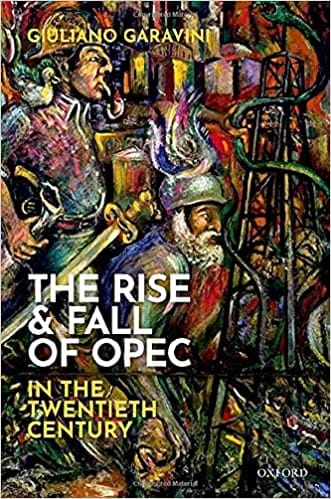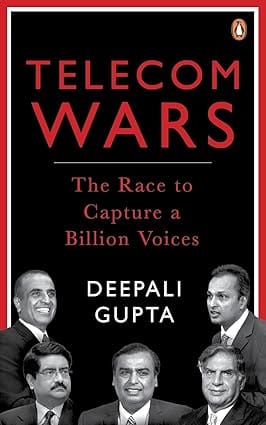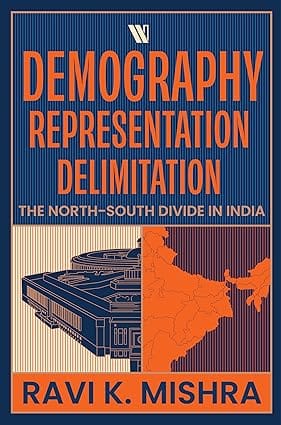-
Contemporary Fiction
- Contemporary Fiction
-
Children
- Children
-
Comics & Graphic Novels
- Comics & Graphic Novels
-
Non-Fiction
- Non-Fiction
-
Fiction
- Fiction
The Organization of the Petroleum Exporting Countries (OPEC) is one of the most recognizable acronyms among international organizations. It is mainly associated with the 'oil shock' of 1973 when prices of petroleum quadrupled and industrialized countries and consumers were forced to face the limits of their development model.
This is the first history of OPEC and of its members written by a professional historian. It carries the reader from the formation of the first petrostate in the world, Venezuela in the late 1920s, to the global ascent of petrostates and OPEC during the 1970s, to their crisis in the late-1980s and early- 1990s.
Formed in 1960, OPEC was the first international organization of the Global South. It was perceived as acting as the economic 'spearhead' of the Global South and acquired a role that went far beyond the realm of oil politics. Petrostates such as Venezuela, Nigeria, Algeria, Saudi Arabia, Iraq, and Iran were (and continue to be) key regional actors, and their enduring cooperation, defying wide political and cultural differences and even wars, speaks to the centrality of natural resources in the history of the twentieth century, and to the underlying conflict between producers and consumers of these natural resources.
Review
The Rise and Fall of OPEC is a masterful book that contradicts the well-worn but essentialist understandings of oil as the root of authoritarianism, Middle East wars or environmental catastrophe. - Journal of Colonialism and Colonial History
Garavini does much more than simply set the record straight. He reorients our view of the international organization away from the overblown and exaggerated accounts of oil-weapon-wielding-sovereigns holding the West hostage. - Robert Vitalis
Garavini's book is more than a history of OPEC, "one of the most recognizable acronyms in the world" (9). It aspires to be a global history of oil's role in shaping the twentieth century. - Gregory Brew
The Rise and Fall of OPEC in the Twentieth Century is an outstanding contribution to the international history of the twentieth century and deserves a wide audience. - David Painter
This is not just a book about oil markets, the economy, and the oil industry. Scholars of energy and geopolitics will find a succinct and focused analysis of the development of Organization of the Petroleum Exporting Countries (OPEC) 'petrostates,' the organization itself and the role it played the economic and political development of the twentieth century. - Ellen R. Wald
The thesis of The Rise and Fall of OPEC is that the international cooperation among petrostates has constituted one of the most powerful drivers of the international history of the 20th Century - Adriana Castagnoli, Il Sole 24 Ore [translated]
No book about oil and the world economy has had more of an impact than Daniel Yergin's 1990 masterpiece The Prize [...] It may not get its own miniseries, but Giuliano Garavini's Rise and Fall of OPEC in the Twentieth Century is no less groundbreaking for its subject. - Michael Franczak, Cold War History
Garavini has made an important contribution to the history of the oil resource ... The author's courage to pursue a large number of actors over a long period of time leads to a complex narrative that will be the reference to OPEC's history for the foreseeable future... - Clemens Huemeriehner, Sehepunkte
... a unique look into the organisation's internal decision-making... detailed and carefully researched book... a corrective to western-centric accounts of the organisation and an essential read for those trying to understand the forces that built the modern energy world and the Middle East... also a reminder that tacticians and strategists of a high calibre will be needed to lead Opec into its seventh decade. - Robin Mills, The National
... a welcome addition to the literature ...[Garavini] leverages the previously unavailable minutes of OPEC conferences ... as well as his deep expertise about and clear passion for the subject, to pen a fresh account, full of enduring lessons for today, of the history of the world's most prolific oil organizations ... Vital reading for historians of oil and anyone interested in political economy or the Middle East. - John Bowlus, Energy-Reporters.com
About the Author
- Home
- Non-Fiction
- The Rise And Fall Of Opec In The Twentieth Century
The Rise And Fall Of Opec In The Twentieth Century
SIZE GUIDE
- ISBN :9780192897527
- Author: Giuliano Garavini
- Publisher: Oxford
- Pages: 448
- Format: Paperback
Book Description
The Organization of the Petroleum Exporting Countries (OPEC) is one of the most recognizable acronyms among international organizations. It is mainly associated with the 'oil shock' of 1973 when prices of petroleum quadrupled and industrialized countries and consumers were forced to face the limits of their development model.
This is the first history of OPEC and of its members written by a professional historian. It carries the reader from the formation of the first petrostate in the world, Venezuela in the late 1920s, to the global ascent of petrostates and OPEC during the 1970s, to their crisis in the late-1980s and early- 1990s.
Formed in 1960, OPEC was the first international organization of the Global South. It was perceived as acting as the economic 'spearhead' of the Global South and acquired a role that went far beyond the realm of oil politics. Petrostates such as Venezuela, Nigeria, Algeria, Saudi Arabia, Iraq, and Iran were (and continue to be) key regional actors, and their enduring cooperation, defying wide political and cultural differences and even wars, speaks to the centrality of natural resources in the history of the twentieth century, and to the underlying conflict between producers and consumers of these natural resources.
Review
The Rise and Fall of OPEC is a masterful book that contradicts the well-worn but essentialist understandings of oil as the root of authoritarianism, Middle East wars or environmental catastrophe. - Journal of Colonialism and Colonial History
Garavini does much more than simply set the record straight. He reorients our view of the international organization away from the overblown and exaggerated accounts of oil-weapon-wielding-sovereigns holding the West hostage. - Robert Vitalis
Garavini's book is more than a history of OPEC, "one of the most recognizable acronyms in the world" (9). It aspires to be a global history of oil's role in shaping the twentieth century. - Gregory Brew
The Rise and Fall of OPEC in the Twentieth Century is an outstanding contribution to the international history of the twentieth century and deserves a wide audience. - David Painter
This is not just a book about oil markets, the economy, and the oil industry. Scholars of energy and geopolitics will find a succinct and focused analysis of the development of Organization of the Petroleum Exporting Countries (OPEC) 'petrostates,' the organization itself and the role it played the economic and political development of the twentieth century. - Ellen R. Wald
The thesis of The Rise and Fall of OPEC is that the international cooperation among petrostates has constituted one of the most powerful drivers of the international history of the 20th Century - Adriana Castagnoli, Il Sole 24 Ore [translated]
No book about oil and the world economy has had more of an impact than Daniel Yergin's 1990 masterpiece The Prize [...] It may not get its own miniseries, but Giuliano Garavini's Rise and Fall of OPEC in the Twentieth Century is no less groundbreaking for its subject. - Michael Franczak, Cold War History
Garavini has made an important contribution to the history of the oil resource ... The author's courage to pursue a large number of actors over a long period of time leads to a complex narrative that will be the reference to OPEC's history for the foreseeable future... - Clemens Huemeriehner, Sehepunkte
... a unique look into the organisation's internal decision-making... detailed and carefully researched book... a corrective to western-centric accounts of the organisation and an essential read for those trying to understand the forces that built the modern energy world and the Middle East... also a reminder that tacticians and strategists of a high calibre will be needed to lead Opec into its seventh decade. - Robin Mills, The National
... a welcome addition to the literature ...[Garavini] leverages the previously unavailable minutes of OPEC conferences ... as well as his deep expertise about and clear passion for the subject, to pen a fresh account, full of enduring lessons for today, of the history of the world's most prolific oil organizations ... Vital reading for historians of oil and anyone interested in political economy or the Middle East. - John Bowlus, Energy-Reporters.com
About the Author
Related Books
User reviews
NEWSLETTER
Subscribe to get Email Updates!
Thanks for subscribing.
Your response has been recorded.

India's Iconic & Independent Book Store offering a vast selection of books across a variety of genres Since 1978.
"We Believe In The Power of Books" Our mission is to make books accessible to everyone, and to cultivate a culture of reading and learning. We strive to provide a wide range of books, from classic literature, sci-fi and fantasy, to graphic novels, biographies and self-help books, so that everyone can find something to read.
Whether you’re looking for your next great read, a gift for someone special, or just browsing, Midland is here to make your book-buying experience easy and enjoyable.
We are shipping pan India and across the world.
For Bulk Order / Corporate Gifting
 +91 9818282497 |
+91 9818282497 |  [email protected]
[email protected]
Click To Know More
INFORMATION
POLICIES
ACCOUNT
QUICK LINKS
ADDRESS
Shop No.20, Aurobindo Palace Market, Near Church, New Delhi














